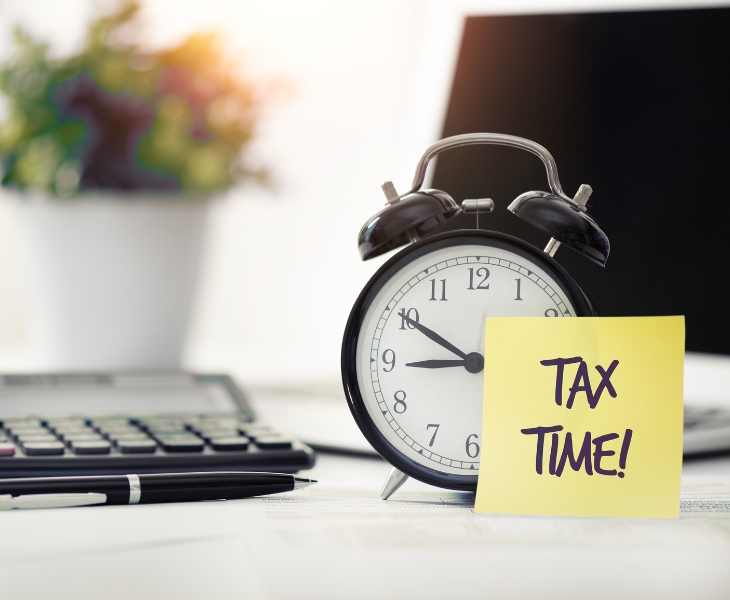In Australia, the end of the fiscal year (EOFY) is a critical time for individuals and businesses to assess their finances and make financial decisions in order to maximise their tax deductions. This requires careful planning and consideration of eligible expenses. Work-related expenses, charitable donations, and investments in depreciable assets are examples of such claimable expenses.
So, whether you do your taxes yourself or hire a tax professional, knowing how to maximise tax deductions is always a good idea.
1. Work Bag
You can claim a deduction on the cost of a bag or carry case you use to transport items for work. Briefcases, laptop bags, luggage, and handbags are examples of work bags and carry cases. Laptops, tools, client briefs, and protective gear are examples of work-related items. Make sure your work bag doesn’t include personal or domestic items such as gym equipment, food, or a personal phone or tablet. If you ‘re using a bag or case to carry both work and personal items, you must divide the cost between the two. Keep your work bag receipt handy, take a picture of the receipt, or have an electronic copy emailed to you. If the bag costs more than $300, you must factor in depreciation rather than claiming the full amount on your next tax return.
How to claim:
- If you have a bag which cost less than $300, you can claim an immediate deduction.
- If the bag is more than $300, calculate any deduction based on the decline in value of depreciating assets over their effective life.
2. Car Expenses
One of the most popular travel tax deductions is transportation costs. Work-related travel in your car is generally claimable, with the exception of travel from home to work and vice versa.
Allowable Claims:
- Travelling from your place of employment to off-site meetings or events.
- If you work from home for part of the day and then commute to work for the same employer.
- Travelling from your home to an alternate workplace.
- You can claim the cost of travel between locations if you work at more than one location for the same employer.
The ATO allows you to calculate car expenses in two ways: you can use a logbook (which must be kept for at least 12 weeks) or you can claim cents per kilometre.
You can submit your work-related transportation costs as business-related travel expenses on your tax return if your costs concern:
- a vehicle other than a car, such as a motorcycle or scooter, with a carrying capacity of more than one tonne, such as utes, or a heavy vehicle, such as a van, with a carrying capacity of nine or more passengers.
- costs incurred when driving someone else’s car or other vehicle for work purposes, such as fuel, air, bus, train, tram, ferry, taxi, and ride.
- bridge tolls, road tolls, or car parking expenses associated with work-related transportation expenses.
In your tax return, you claim all work-related travel expenses (accommodation, meals, and incidentals) as work-related travel expenses.
3. Travel Expense Claim
If you travel away from home overnight while performing your job duties, you can claim travel expenses including meals, lodging, fares, and incidentals. You cannot claim a deduction if your employer or another person pays for or reimburses your travel. Receiving a travel allowance from your employer does not automatically entitle you to a tax deduction. You must still keep a copy of receipts showing that you were away overnight, that you spent money, and that your travel was directly related to your employment.
4. Deductions for COVID
While many workplaces have returned to normal and no longer have COVID-prevention practises in place, some occupations, particularly those in the healthcare sector, may continue to experience changed working conditions as a result of the COVID. As a result, the deductions you can claim may change. For example, you may be able to deduct the cost of purchasing a face mask to wear at work if:
- your employer hasn’t given you a face mask but you are compelled to wear one because your employment demands you and other employees to be at the workplace. (This is most likely the case if your duties require you to be in close contact with other people.) This includes medical practitioners, retail and restaurant workers, cleaners, beauticians, hairdressers, and office workers who were required to present a negative RATs, PCRs, and or wear masks to workplace during a part of the fiscal year 2023.
5. Education or Courses
Self-education expenditures that are closely related to your job can also be qualified as tax deductible. Here are some instances of educational expenditures that you can deduct: tuition fees, office supplies, internet costs, administrative fees, transport and lodging, and other related expenses.
However, in order to be qualified, it must lead to an official qualification that fulfills the following criteria:
- The course must enhance or keep skills or information needed for the performance of your job.
- You can describe how the course helps in raising your revenue from your current employment or work tasks.
You cannot get a tax return on the expense of courses if:
- The course was taken in order to establish a new company, find new employment, or make it easier to invest in new sources of revenue.
6. Deduction for Internet and Phone Bills
You can deduct the business portion of your phone and internet expenses whether or not you claim the home office deduction. The key is to only deduct expenses that are directly related to your business. You could, for example, deduct the internet-related costs of running a business website.
You should not deduct your entire monthly bill, including personal and business use, if you only have one phone line; however, you can deduct the full cost of long-distance business calls.

